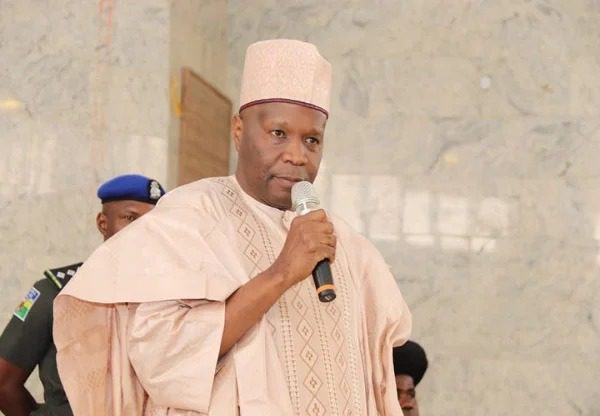In a pivotal move for Nigeria’s energy sector, Aradel Gas Limited, a subsidiary of Aradel Holdings Plc, has signed a Gas Supply Agreement (GSA) to deliver additional gas volumes to Nigeria Liquefied Natural Gas Limited (NLNG) through a partnership with Shell Nigeria Gas (SNG) and NNPC Gas Marketing Limited (NGML). Announced in late August 2025, the agreement marks a significant milestone in Nigeria’s push toward energy transition, reinforcing the Federal Government’s gas reforms aimed at enhancing energy security and driving economic growth. Industry experts have hailed the deal as a game-changer, underscoring Aradel’s growing role in harnessing Nigeria’s vast gas resources to support cleaner energy and industrial development. This article explores the details of the agreement, its implications for Nigeria’s energy landscape, and Aradel’s strategic vision for sustainable growth.
A Strategic Partnership for Energy Security
The Gas Supply Agreement positions Aradel Gas Limited as a key player in Nigeria’s efforts to leverage its abundant natural gas reserves to meet domestic and international energy demands. NLNG, a joint venture between the Nigerian National Petroleum Company Limited (NNPCL), Shell, TotalEnergies, and Eni, is a cornerstone of Nigeria’s liquefied natural gas exports, operating six trains with a capacity of 22 million tonnes per annum (mtpa). The partnership with SNG and NGML, both subsidiaries of major oil and gas players, facilitates the seamless delivery of gas to NLNG’s Bonny Island terminal, ensuring a steady supply for liquefaction and export.
The agreement comes at a critical juncture for Nigeria, which holds Africa’s largest proven gas reserves, estimated at over 200 trillion cubic feet. Despite this wealth, the country has struggled to fully monetize its gas resources due to infrastructure constraints, regulatory challenges, and historical reliance on oil. The Federal Government’s gas reforms, including the Decade of Gas initiative and policies to eliminate routine gas flaring, aim to address these issues by prioritizing gas as a catalyst for energy transition and economic diversification. Aradel’s GSA with NLNG aligns directly with these objectives, enhancing Nigeria’s capacity to supply gas for both domestic consumption and export markets.
Industry observers have described the agreement as a “significant step forward” for Nigeria’s energy transition agenda. By increasing gas supply to NLNG, Aradel is contributing to the country’s efforts to reduce dependence on oil, promote cleaner energy sources, and stimulate industrial growth. Natural gas, with its lower carbon footprint compared to oil and coal, is seen as a bridge fuel in the global shift toward renewable energy. For Nigeria, gas represents an opportunity to power industries, generate electricity, and create jobs, all while meeting international climate commitments.
Aradel’s Commitment to Nigeria’s Gas Agenda
Commenting on the agreement, Adegbite Falade, Managing Director and CEO of Aradel Holdings Plc, expressed optimism about its impact on Nigeria’s energy landscape. “We are pleased to sign an agreement that guarantees the supply of additional gas volumes to NLNG through the SNG-NGML partnership,” Falade said in a statement. “As the energy landscape evolves, natural gas remains central to our growth strategy and to the broader transition to cleaner energy. At Aradel, our expansion plans align closely with the Federal Government’s initiatives on domestic gas supply, energy transition, and leveraging gas for Nigeria’s industrial development.”
Falade’s remarks highlight Aradel’s strategic vision to position itself as a leader in Nigeria’s gas sector. Since its inception, Aradel Holdings Plc has focused on maximizing the potential of its upstream and midstream assets, particularly in the Niger Delta. The company’s 100 million standard cubic feet per day (mmscf/d) gas processing plant, commissioned in 2012 at its Ogbele field, has been a cornerstone of its operations. The facility enables Aradel to harness and commercialize gas resources, contributing to domestic gas supply while reducing environmental impact through the elimination of routine gas flaring.
Aradel’s commitment to sustainability is a key differentiator in Nigeria’s energy sector. The company became the first non-joint venture gas supplier to NLNG, a milestone that underscores its ability to compete with multinational oil companies in the gas market. By eliminating routine gas flaring at its Ogbele facility in 2012, Aradel has also demonstrated its dedication to environmental stewardship, aligning with global efforts to combat climate change and reduce greenhouse gas emissions.
Infrastructure Investments Drive Growth
Aradel’s success in securing the GSA with NLNG is rooted in its consistent investment in infrastructure. The company’s Ogbele gas processing plant, with a capacity of 100 mmscf/d, is a testament to its forward-thinking approach. The facility, one of the few of its kind operated by an indigenous company, enables Aradel to process and deliver high-quality gas to domestic and international markets. This infrastructure has been critical to the company’s ability to meet NLNG’s stringent supply requirements, positioning it as a reliable partner in Nigeria’s gas value chain.
In addition to its gas processing capabilities, Aradel has invested in pipelines, storage facilities, and other midstream infrastructure to support its operations. These investments have not only enhanced the company’s operational efficiency but also contributed to Nigeria’s broader gas commercialization efforts. By expanding its capacity to supply gas to NLNG, Aradel is helping to bridge the gap between Nigeria’s vast gas reserves and their utilization for economic development.
The company’s focus on infrastructure aligns with the Federal Government’s Decade of Gas initiative, which aims to unlock Nigeria’s gas potential through investments in gas processing, transportation, and distribution. By supporting projects like the Ajaokuta-Kaduna-Kano (AKK) gas pipeline and promoting domestic gas utilization, the government is creating an enabling environment for companies like Aradel to thrive. The GSA with NLNG is a direct outcome of this supportive policy framework, demonstrating the synergy between public and private sector efforts to advance Nigeria’s gas agenda.
Economic and Environmental Implications
The Gas Supply Agreement has far-reaching implications for Nigeria’s economy and environment. Economically, the deal strengthens Nigeria’s position as a leading LNG exporter, generating foreign exchange earnings and supporting balance of payments stability. NLNG’s operations contribute significantly to Nigeria’s GDP, with exports to Europe, Asia, and other markets driving economic growth. By supplying additional gas volumes to NLNG, Aradel is bolstering this critical revenue stream, which is particularly important given the volatility of global oil prices.
The agreement also supports Nigeria’s domestic gas agenda, which prioritizes gas utilization for power generation, industrial processes, and household consumption. Gas-powered electricity is a key component of Nigeria’s efforts to address chronic power shortages, which have long hindered industrial productivity and economic growth. By increasing the availability of gas for domestic use, Aradel is contributing to improved electricity supply, which could stimulate manufacturing, create jobs, and enhance living standards.
Environmentally, the agreement reinforces Nigeria’s commitment to reducing carbon emissions and transitioning to cleaner energy sources. Natural gas produces significantly fewer emissions than oil and coal, making it a critical bridge fuel in the global shift toward renewables. Aradel’s elimination of routine gas flaring at its Ogbele facility since 2012 has already reduced greenhouse gas emissions, and the GSA with NLNG further supports these efforts by ensuring that gas is captured and commercialized rather than wasted. This aligns with Nigeria’s commitments under the Paris Agreement and its goal of achieving net-zero emissions by 2060.
Aradel’s Role in Nigeria’s Energy Transition
Aradel’s strategic focus on natural gas positions it as a key player in Nigeria’s energy transition. The company’s investments in gas infrastructure, coupled with its commitment to sustainability, align with global trends toward cleaner energy sources. As the world moves away from fossil fuels, natural gas is expected to play a pivotal role in meeting energy demand while reducing carbon emissions. For Nigeria, with its abundant gas reserves, this presents a unique opportunity to drive economic growth while addressing environmental challenges.
The GSA with NLNG is a testament to Aradel’s ability to capitalize on this opportunity. By supplying gas to one of the world’s leading LNG producers, the company is not only contributing to Nigeria’s export earnings but also supporting the global energy transition. The partnership with SNG and NGML, both established players in the gas sector, further enhances Aradel’s credibility and positions it for future collaborations with international energy companies.
Aradel’s success also highlights the growing role of indigenous companies in Nigeria’s oil and gas industry. Historically dominated by multinational oil companies, the sector has seen a rise in local players like Aradel, which are leveraging technical expertise, strategic partnerships, and government support to compete effectively. The company’s status as the first non-joint venture gas supplier to NLNG is a landmark achievement, demonstrating that indigenous firms can play a leading role in Nigeria’s energy future.
Challenges and Opportunities Ahead
While the GSA marks a significant achievement for Aradel, the company faces challenges as it seeks to expand its role in Nigeria’s gas sector. Infrastructure constraints, such as limited pipeline networks and gas processing facilities, remain a bottleneck for gas commercialization in Nigeria. The high cost of developing midstream infrastructure, coupled with regulatory complexities, could slow Aradel’s expansion plans if not addressed.
Security risks in the Niger Delta, where Aradel’s Ogbele field is located, also pose a challenge. Pipeline vandalism and oil theft have historically disrupted operations in the region, and while Aradel has managed to maintain stable operations, ongoing security concerns could impact its ability to scale up gas production. The company will need to work closely with the government and local communities to mitigate these risks and ensure uninterrupted operations.
Despite these challenges, the GSA presents significant opportunities for Aradel. The agreement strengthens the company’s financial position by securing a steady revenue stream from NLNG, which could support further investments in infrastructure and exploration. It also enhances Aradel’s reputation as a reliable gas supplier, opening the door to additional partnerships with domestic and international players. As Nigeria’s gas market continues to grow, Aradel is well-positioned to capture a larger share of the value chain, from upstream exploration to midstream processing and downstream distribution.
The Broader Context: Nigeria’s Gas Ambitions
The Aradel-NLNG agreement must be viewed in the context of Nigeria’s broader gas ambitions. The Federal Government’s Decade of Gas initiative, launched in 2021, aims to transform Nigeria into a gas-powered economy by 2030. Key components of the initiative include expanding gas infrastructure, promoting domestic gas utilization, and eliminating routine gas flaring. The government has also introduced policies to incentivize gas development, such as tax breaks for gas projects and streamlined licensing processes.
These reforms have created a favorable environment for companies like Aradel to thrive. The completion of projects like the AKK pipeline and the expansion of NLNG’s Train 7 will further enhance Nigeria’s gas infrastructure, creating new opportunities for gas suppliers. Aradel’s GSA with NLNG positions it to benefit from these developments, as increased demand for LNG and domestic gas creates a growing market for its products.
The agreement also aligns with Nigeria’s economic diversification goals. With oil prices subject to global volatility, the government is prioritizing gas as a stable revenue source and a driver of industrial growth. By supporting companies like Aradel, the government is fostering a vibrant gas ecosystem that can attract investment, create jobs, and reduce reliance on oil exports.
A Bright Future for Aradel and Nigeria’s Gas Sector
Aradel Gas Limited’s Gas Supply Agreement with NLNG is a landmark achievement that underscores the company’s growing influence in Nigeria’s energy sector. By securing a partnership with one of the world’s leading LNG producers, Aradel is contributing to Nigeria’s energy transition, economic growth, and environmental sustainability. The agreement reflects the company’s strategic vision, robust infrastructure, and commitment to excellence, positioning it as a leader in the gas value chain.
As Nigeria continues to harness its vast gas resources, companies like Aradel will play a critical role in driving progress. The GSA not only strengthens Aradel’s financial and operational outlook but also reinforces Nigeria’s position as a global gas player. With the government’s gas reforms gaining momentum and indigenous companies stepping up, the future of Nigeria’s gas sector looks brighter than ever. For Aradel, this agreement is a stepping stone toward greater achievements, as it seeks to maximize the potential of its assets and contribute to Nigeria’s vision of a gas-powered future.






